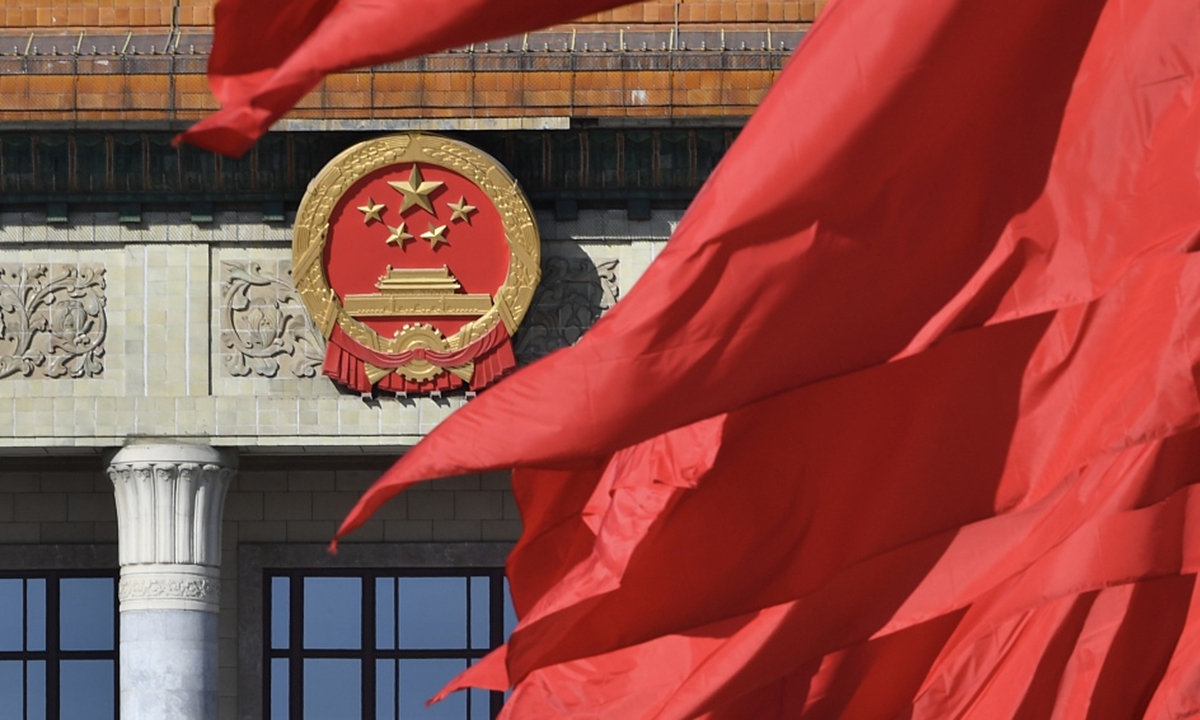After all delegates to attend the upcoming 20th National Congress of the Communist Party of China (CPC) were selected, officials introduced in detail the characteristics of the delegation, with 33.6 percent of Party members working at the frontlines of work and production, more female representatives and more delegates from ethnic minority groups. Half of them hold postgraduate degrees, and they are from a wide range of walks of life.
Experts believed that such broad representation of delegates and a guarantee of delegates from the frontlines not only shows the solid and wide foundation of the CPC, which maintains continuous succession and exuberant vitality, but also embodies the characteristics of intra-Party democracy. Moreover, the strict process of selection also guaranteed a fully open and transparent procedure to select the best Party representatives from all industries, and guarantee a fruitful convening of the congress.
A total of 2,296 delegates were elected to attend the upcoming 20th National Congress of the CPC, an official statement said on Sunday.
Under the guidance of Xi Jinping Thought on Socialism with Chinese Characteristics for a New Era, the delegates were elected in accordance with the Party Constitution and the CPC Central Committee’s requirements, adopting methods required by the CPC Central Committee, the statement said.
An official from the Organization Department of the CPC Central Committee held an interview with the Xinhua News Agency, which was published on Monday, and introduced the selection of the delegates.
According to the official, the CPC Central Committee has clear requirements for choosing delegates to attend the upcoming 20th CPC National Congress, which is to prioritize Party members who are working at the frontlines, and make sure the structure of delegates is reasonable and widely representative.
According to the official, there are 771 delegates from the frontlines of work and production, accounting for 33.6 percent of the total. Among them, 192 delegates are workers, occupying 8.4 percent; 85 are farmers, making up 3.7 percent, and 266 professional and technical staffers, accounting for 11.6 percent of the total.
Another characteristic of the delegates features the increasing number of female and ethnic minority representatives. Female delegates total 619, which is 68 more than those who participated in the 19th National Congress of the CPC, and an increase of 2.8 percentage points. Representatives from ethnic minority groups account for 264, or 11.5 percent of the total number, covering 40 ethnic minority groups.
Those delegates are from all walks of life, including the economic, technological, scientific, national defense, health, cultural and sports fields, and ranging from provincial to village and community levels.
The average age of the 2,296 delegates is 52.2 years. Among them, 1,371 delegates, or 59.7 percent, are below 55 years old, and 18.9 percent are below 45 years old.
A total of 52.7 percent of the delegates hold postgraduate degrees and 36 percent hold undergraduate degrees. The official also pointed out that those representatives joined the Party at various periods, yet 2,224 joined after reform and opening-up, accounting for 96.9 percent, and forming the main body of the delegates.
When asked how those delegates were selected out of 96 million Party members in China, the official said that they were recommended by all departments and institutions; and they were put under strict examination via various channels. For example, departments and institutes that were qualified to recommend them should form special groups to take opinions from people about the potential delegates.
The delegates were selected from all levels, from grassroots Party organizations to institutes that were qualified to select and make sure the best candidates were chosen.
What’s noteworthy is that those 2,296 delegates still need to be examined before the convening of the congress, said the official.
Such a proportion of frontline delegates shows that the CPC has done well in “intra-Party democracy” as those elected delegates – including workers, farmers and professionals – have made remarkable achievements in their work and are highly qualified, Zhang Shuhua, director of the Institute of Political Sciences of the Chinese Academy of Social Sciences, told the Global Times on Monday.
The delegates are broadly representative, with a reasonable structure and distribution in terms of ages, regions and industries, meeting the requirements set by the CPC Central Committee and winning the support of Party members, Zhang said.
Yang Xuedong, a professor of political science at Tsinghua University, echoed this opinion. The upcoming 20th CPC National Congress is very essential as profound changes are evolving rapidly in the world, and the country is on a journey to build China into a modern socialist country in all respects and achieve the Second Centenary Goal, so that the public surely will pay high attention to the elected delegates.
The elected delegates are broadly representative of various industries, which reflects democracy in China. This is different from Western-style democracy, as China’s intra-Party democracy involves careful consultation and selection of delegates, and Western democracies largely involve simple votes, Yang told the Global Times on Monday.
The elected delegates are representatives of the Party as well as a mirror of what the Party has achieved over the past five years in terms of the cultivation of Party members and the growth of their capacity, Yang said.
In fact, it reflects the progress of the entire Chinese society in the past 40 years since its reform and opening-up. It was the continuous progress in all aspects of China’s social economy and culture in the past decades that led to the change of the population (Party membership) structure, according to Yang.
To ensure that true excellent Party members who have firm faith and are upright were selected, departments and institutes that were qualified to recommend them had six criteria, including their political stance, ability, performance and so forth.
Participation in poverty relief, fighting COVID-19, disaster-relief work and pushing for technological innovation were point-earners for potential candidates, according to the official.
According to statistics, those who worked at the frontlines and won provincial- and corps-level honorary titles account for 710, with 92.1 percent of the delegates working at the frontlines.
Party members who violated the Party’s disciplines and regulations, or were “double-faced” or suspected of having problems with corruption, were excluded, said the official.














